First Amendment Rights and Censorship: Cardigans' Case Analysis
VerifiedAdded on 2023/04/06
|5
|631
|434
Report
AI Summary
This legal memo addresses a case involving Cardigans, a clothing line, and the potential violation of their First Amendment rights due to censorship of their commercial by WBLAH, a local television station. The memo analyzes the situation, focusing on freedom of speech and the denial of broadcasting the commercial. It references the First Amendment and the landmark case of Federal Communications Commission v. Pacifica Foundation to establish a legal framework for the Cardigans' defense. The memo argues that the brand's name and slogan, which highlight product comfort, do not constitute indecency and that WBLAH's refusal to air the commercial infringes upon Cardigans' First Amendment rights. The memo suggests that the censorship provisions in the US lack a predefined standard for indecency, allowing for case-by-case interpretation based on socio-cultural norms, and concludes that WBLAH's denial of the commercial is a breach of Cardigans' rights.
1 out of 5
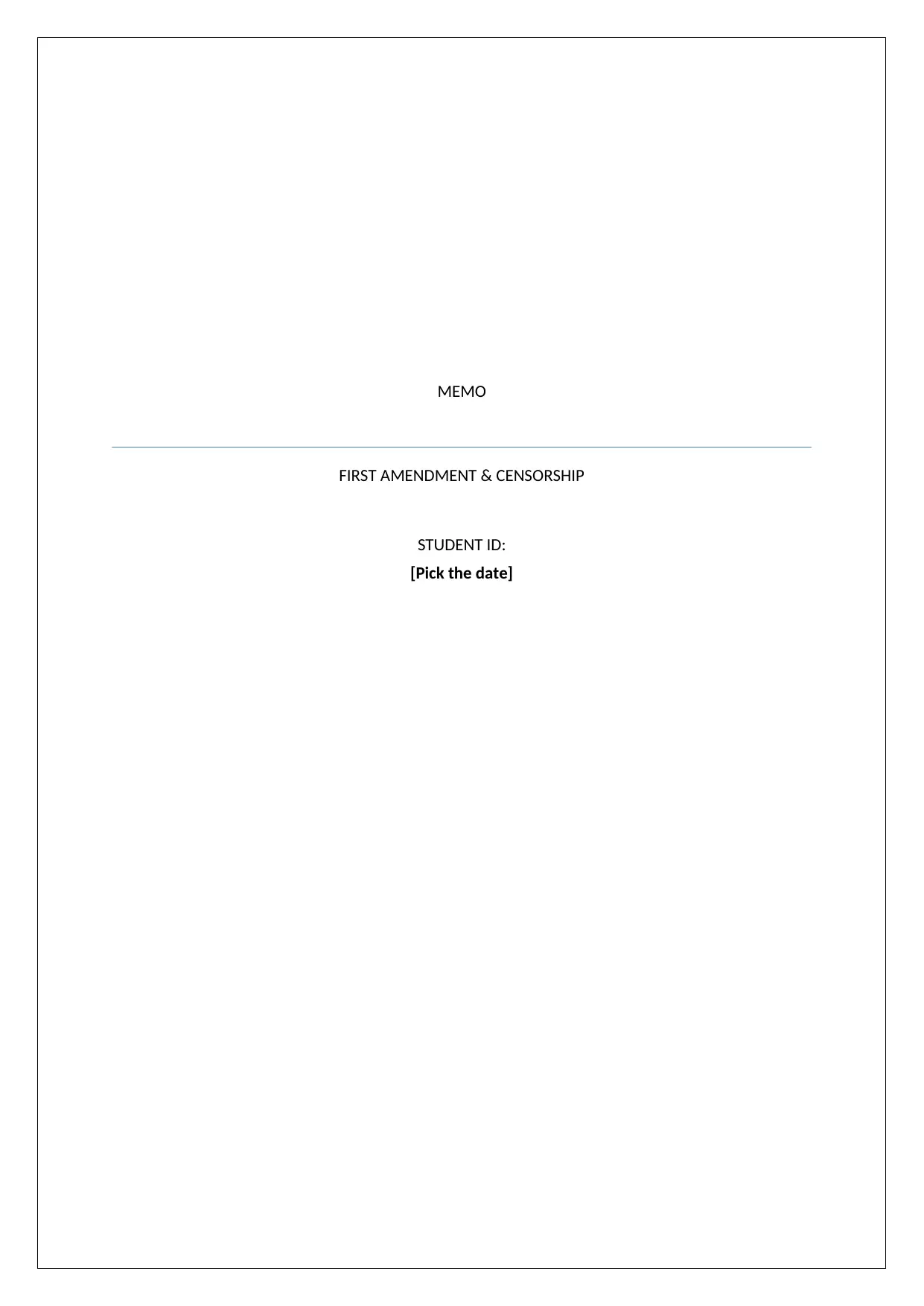
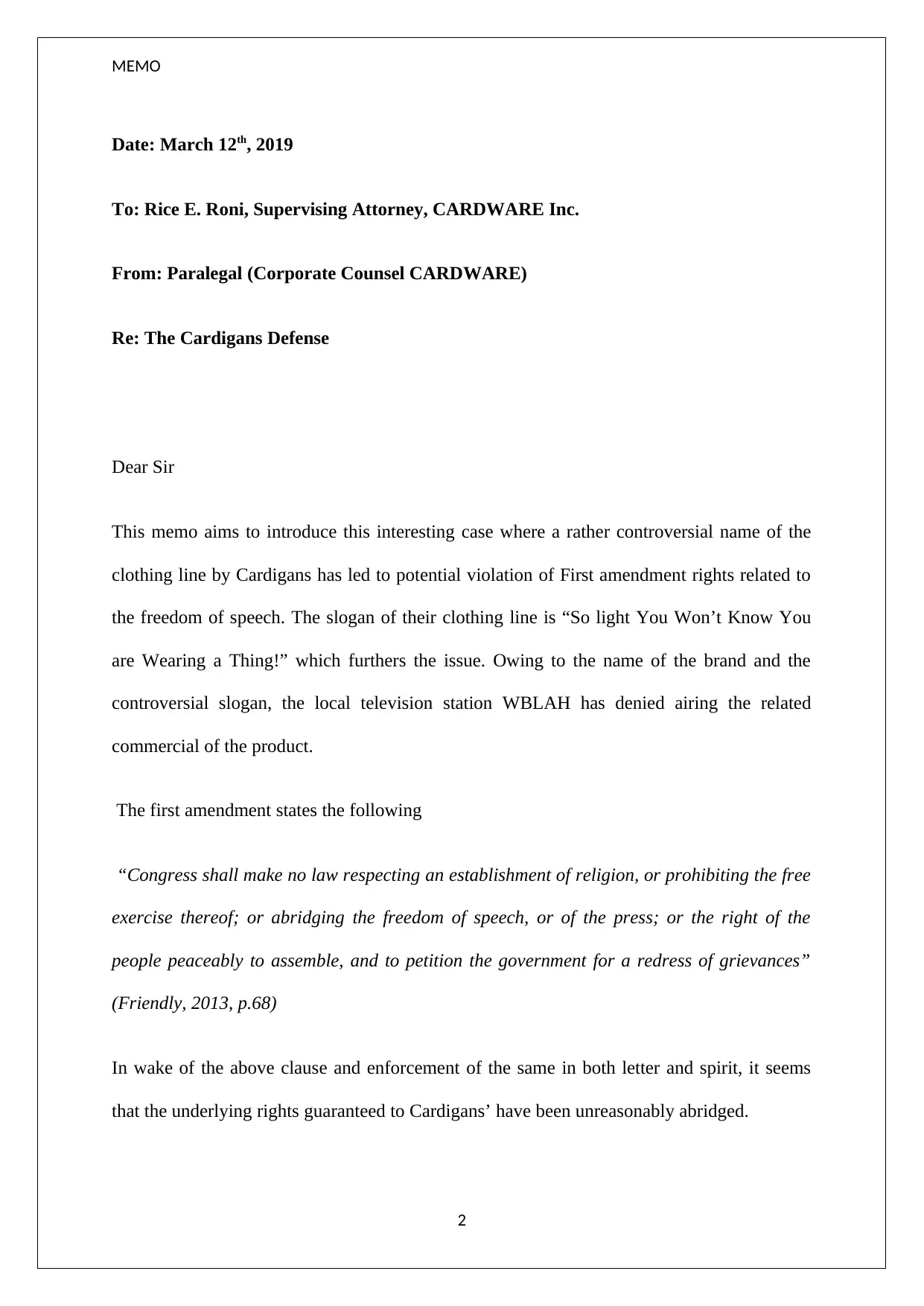
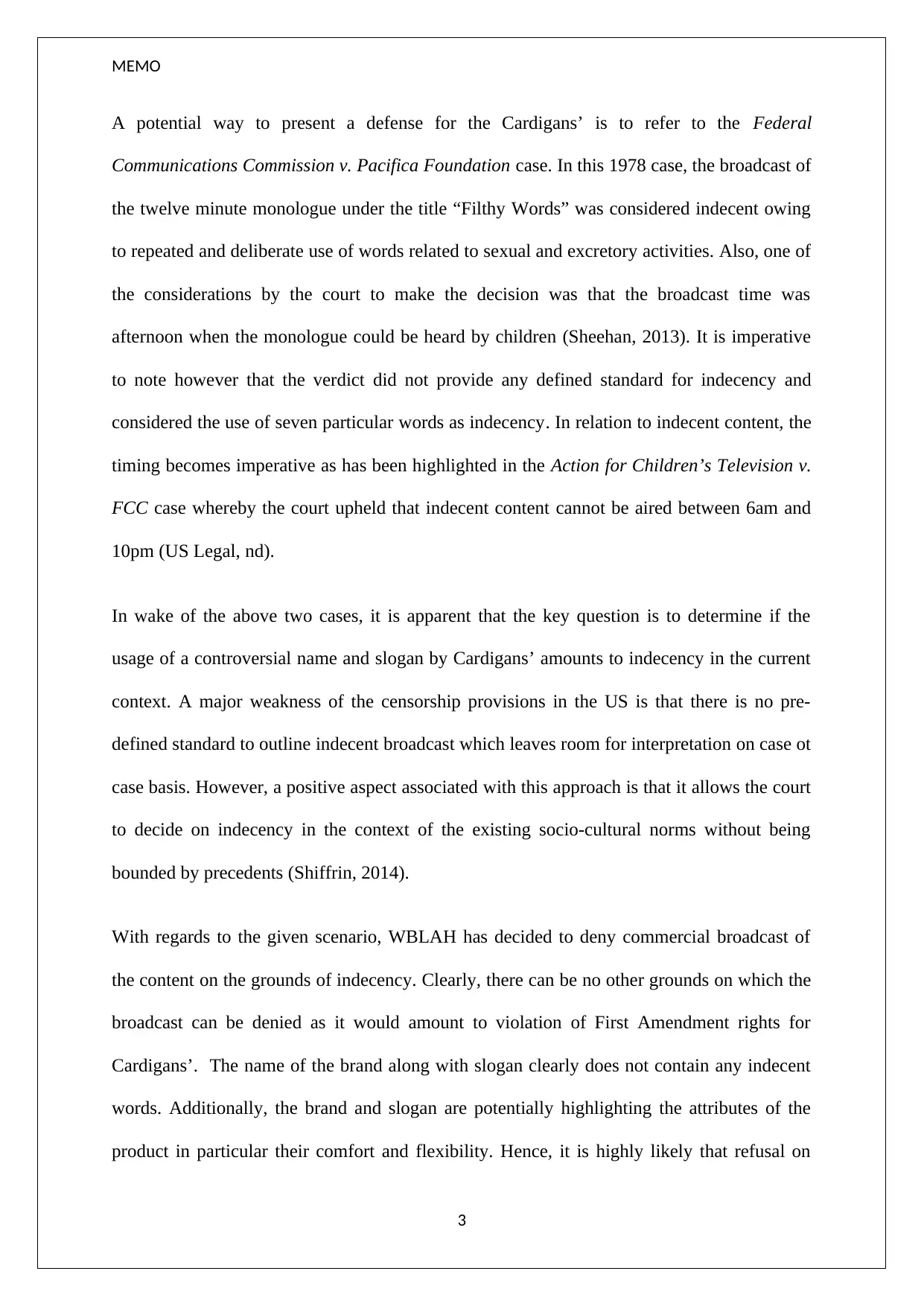

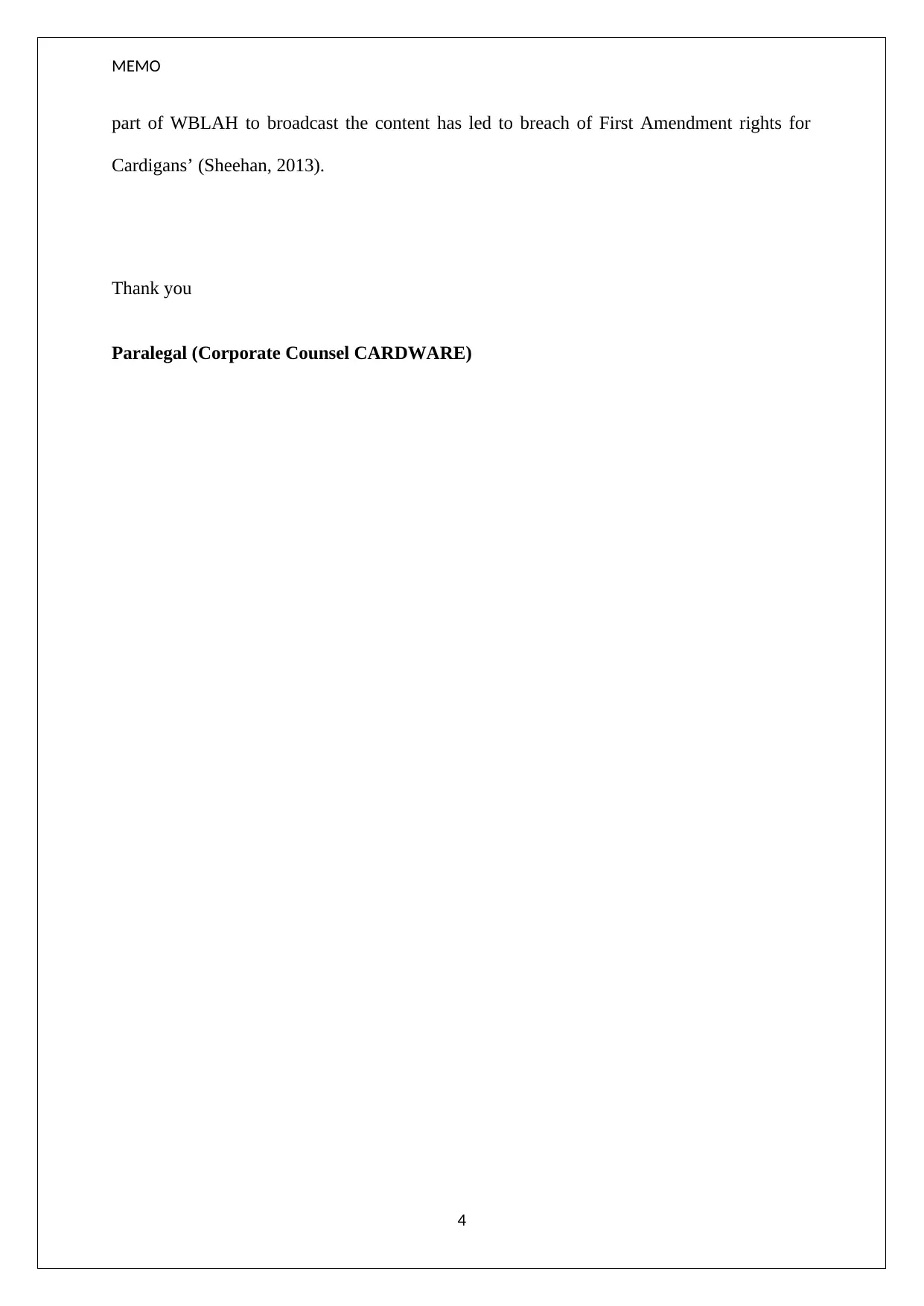
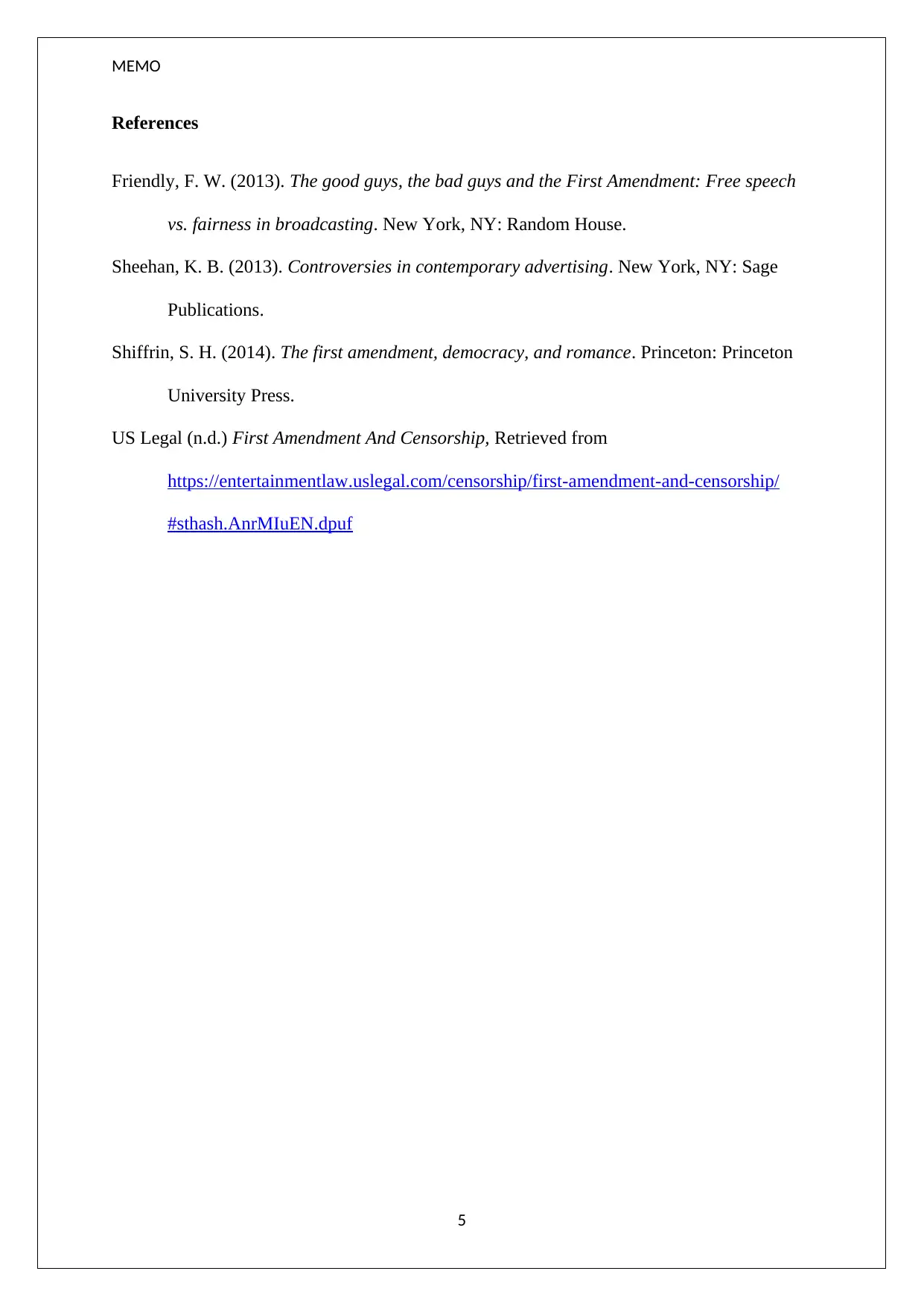
![[object Object]](/_next/static/media/star-bottom.7253800d.svg)